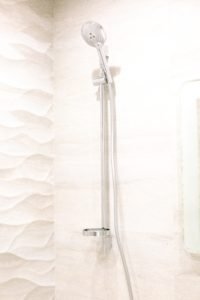
Empowerline receives hundreds of calls each week from, caregivers, professionals, and other callers seeking information and resources on an expansive array of topics. One of the primary reasons people reach out to the Information and Referral team at Empowerline is for in-home services for those who need help living safely and independently in their community. The needs are great, and the call volume is massive. Yet, there are some callers and consumers that stick out and leave a lasting impression. Pinkie was one such person.
Pinkie called into the one day in February after being referred by her Humana Social Worker. Pinkie had recently been discharged from a rehabilitation facility after being told that she had “run out of days”. She was sent home despite being what she described as “dead weight” as the result of a stroke. Pinkie went on to share that she lived with only her spouse who was “real sick waiting on a kidney”. She shared that her adult son comes by when he can, but he does not live with them. Pinkie was requesting help finding in-home services for bathing assistance and therapies to help her function more safely in her home.
The first step in any Information and Referral call is to ask a multitude of questions in an attempt to find programs and resources that would be a good fit. In Pinkie’s case, each answer presented a new roadblock. Pinkie was not being negative or difficult. In fact, she was an extremely friendly and open person. Someone that really touches a heart, even through the phone, and would make anyone want to work as hard as ever to find a good fit. The truth of the matter was that her situation was so much like a lot of callers in that she did not fit neatly into the few options available in her area.
The was the first program discussed as it provides in-home care with personal support aides who could certainly assist with bathing and other tasks Pinkie needed. Unfortunately, this program comes along with something called Medicaid Estate Recovery. That essentially means that after her passing, the Medicaid Estate Recovery office would look to her estate to seek reimbursement for funds spent by Medicaid on her care. This often includes a home if the consumer is a homeowner. Pinkie is like many in her generation and had worked hard to own her home and was uncomfortable with the mere thought of Medicaid Estate Recovery. She quickly declined these services. She would rather have no help than sign herself up for something that would mean she could potentially not be able to pass her home to her children. This is an all too common occurrence.
The Home- and Community-Based Services (HCBS) Program is usually the go-to alternative for in-home services;  however, Pinkie happened to live in a county that only offers home-delivered meals and homemaker services. But what Pinkie really needed was assistance with bathing so that her adult son did not have to continue helping her, which is so uncomfortable for so many people put in this situation.
however, Pinkie happened to live in a county that only offers home-delivered meals and homemaker services. But what Pinkie really needed was assistance with bathing so that her adult son did not have to continue helping her, which is so uncomfortable for so many people put in this situation.
With an income of just over $1,000 per month, paying for private in-home services was out of the question. The ever-increasing cost of living makes private options out of reach for the majority of the callers to the ADRC. To make matters worse, Pinkie shared that her neighborhood has an extremely high crime rate, so they are not able to receive mail deliveries directly to their home. Adding in a P.O. Box to the equation made it more difficult to get physical resources and information to Pinkie because she would now have to find someone to go and pick-up the information for her.
Fortunately, that same morning, Beck Kurtz, Managing Director of Aging and Independence Services at the Atlanta Regional Commission (ARC), sent an e-mail to all staff requesting stories to be shared about how Medicaid Estate Recovery presented an obstacle for consumers to receive the care that they need. Pinkie gave permission for her story to be shared, and Becky’s advocacy efforts took Pinkie’s story all the way to Congressional staff.
After some back and forth over email, it was suggested that home health be discussed with Pinkie for therapies and in-home services through Medicare. After being in a rehabilitation facility under Medicare, it was thought that Pinkie would have exhausted her Medicare coverage. It was at that time that a representative with Justice in Aging shared this resource “Medicare Home Health Coverage: Reality Conflicts with the Law”. This resource states, “So long as the law’s qualifying criteria are met, coverage can continue for an unlimited number of visits.”
This was truly news to the entire team as it has always been widely accepted that home health benefits are only for a limited number of days, ruling them out as a long-term option for assistance in the home. Because of the correspondence that ensued from sharing Pinkie’s story, Empowerline’s Information and Referral Counselor was able to send Pinkie a list of home health agencies as well as the Medicare resource on coverage so that she could go in empowered with the knowledge that she may be eligible and entitled to continued support in the home through her existing Medicare benefits. Without losing her home to Medicaid Estate Recovery, without having to choose to give up food or medicine to private pay for care, Pinkie could now seek services to show her how to shower and care for herself safely and effectively in her own home.
The information regarding Medicare coverage and the law was shared with the entire Information and Referrals team so that this information can be used to help not only Pinkie, but the other callers and consumers calling Empowerline daily. Sharing knowledge and resources that encourage health, wellness, independence, and the rights for consumers to utilize what resources are available to make supported and informed decisions about their care is what it is all about for this team and all of Aging and Independence Services as a whole.
___
For more information about resources for older people and people with disabilities in the Metro Atlanta area, check out our Search for Services feature, or explore the Empowerline website to be connected with services & counseling.


